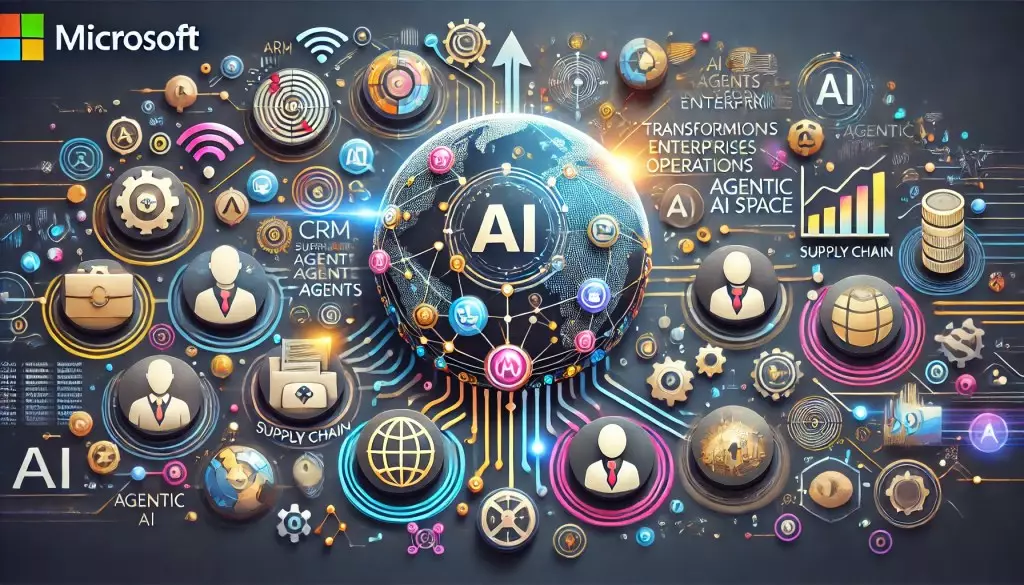At the Ignite 2024 conference, Microsoft has dramatically reshaped the narrative surrounding enterprise AI solutions with the introduction of ten autonomous AI agents tailored specifically for business environments. This bold revelation positions Microsoft at the forefront of the AI arena, demonstrating its commitment not just to theoretical advancements but to practical implementations that can genuinely facilitate business operations. Unlike many competitors who offer limited functionalities, Microsoft is paving the way by delivering a robust agent ecosystem that aims to streamline a multitude of enterprise functions.
The agents target fundamental business operations, including customer relationship management (CRM), supply chain management, and financial processes. The breadth of services signifies Microsoft’s intent to not merely dip its toes into the AI market but to dive deep into the operational fabric of modern enterprises. With the exponential growth of AI applications in the corporate world, Microsoft is showcasing the potential for AI to serve as a central backbone for various organizational processes.
What sets Microsoft apart is its agent ecosystem’s extensive compatibility with third-party applications. With the incorporation of 1,400 third-party connectors and support for over 1,800 large language models (LLMs), businesses have unprecedented potential to customize AI agents according to their unique needs. This level of integration isn’t just about enhancing existing workflows; it’s about fundamentally changing how organizations operate.
The ease with which organizations can create and modify these agents cannot be overstated. Microsoft reports that around 100,000 businesses are already engaging with these AI capabilities, indicating not just a surge in interest but a transformative shift in how enterprises perceive and utilize AI technology. The fact that deployment rates are doubling illustrates a momentum that Microsoft has cultivated effectively, placing it well ahead of alternatives like Salesforce and ServiceNow.
In an age where agility and efficiency are paramount, Microsoft’s strategic lead is evident. By integrating with its established productivity applications, Microsoft can offer enterprise-ready solutions at an unprecedented scale. This has implications not just for Microsoft’s market share but for the competitive landscape as a whole. Companies that previously thrived in specialized niches might find themselves challenged as Microsoft’s AI agents encompass functionalities they once dominated.
Furthermore, Microsoft’s recent shift from a “per token” billing model to a “per outcome” approach represents an evolution in how AI services are valued. This paradigm shift signals a broader transition toward business outcomes rather than just language model outputs, making the use of AI more appealing for enterprises striving for measurable results.
The introduction of these AI agents holds the potential to reshape how companies think about their workflows. Traditional configurations often require time-consuming customizations that can stall progress, while Microsoft’s pre-configured solutions expedite deployment and adoption. This shift may lead to a re-evaluation of roles within organizations, as employees could be freed from repetitive tasks and refocused on strategic initiatives.
However, the landscape is evolving rapidly, and competitors like Google and AWS are not sitting idle. They are likely to respond by stepping up their AI offerings, potentially reshaping the competitive dynamics further. Microsoft’s lead may offer temporary advantages, but the race to innovate is far from over.
The implications of Microsoft’s foray into autonomous AI agents extend beyond corporate boundaries. As AI technology becomes more accessible and integrated into everyday business functions, the potential for innovation and efficiency grows exponentially. Microsoft’s efforts to reposition the AI narrative from merely exploratory to practical usage have set a precedent for what enterprise solutions can achieve.
Moving forward, the critical question is whether Microsoft can maintain its edge against aggressive competition. The journey into agentic AI is just beginning, and how companies embrace and adapt to these advancements will ultimately determine the new landscape of enterprise operations. As this transformation unfolds, business leaders must remain agile, continually assessing how AI can be leveraged to optimize workflows and drive strategic objectives.

